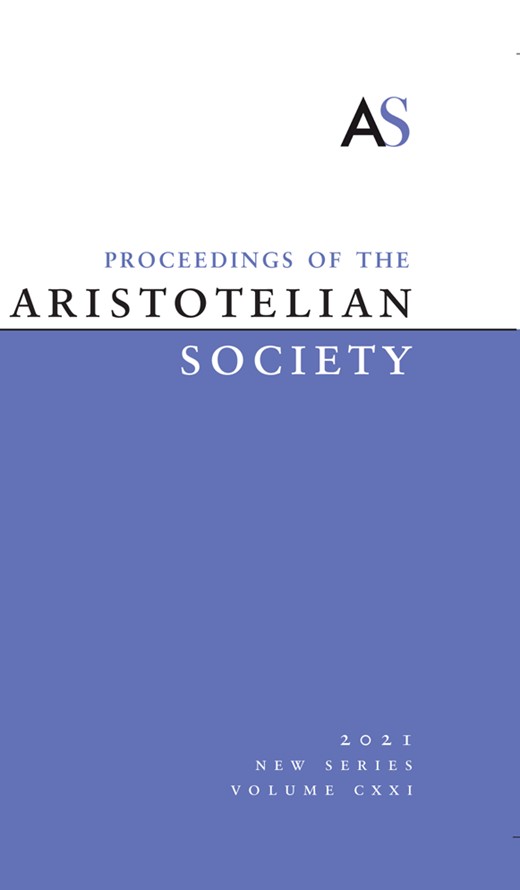-
Views
-
Cite
Cite
Kenny Easwaran, XII—A New Method for Value Aggregation, Proceedings of the Aristotelian Society, Volume 121, Issue 3, October 2021, Pages 299–326, https://doi.org/10.1093/arisoc/aoab008
Close - Share Icon Share
Abstract
Many axiological theories ground the goodness or badness of options in the aggregate of the goodness or the badness of these options for individuals. Most commonly, this works by summing (or averaging), and taking the expectation of this result if there is uncertainty. Such theories face problems dealing with infinite populations, for which sums or averages are infinite or undefined. They fetishize certain mathematical operations, in a subject that is not inherently mathematical. The fact that the sum is the target of maximization is said to mean that the theory ignores the separateness of persons. I propose an extension of my 2014 paper, ‘Decision Theory without Representation Theorems’. I illustrate how the resulting theory can account for a case involving an infinite population, dealing with the objections. I connect this to the theory of measurement, and explain why the mathematical operations are co-extensive with the result without grounding it. Because there is no sum in these infinite populations, it avoids the worry that aggregative theories treat individuals as secondary to some aggregate.





